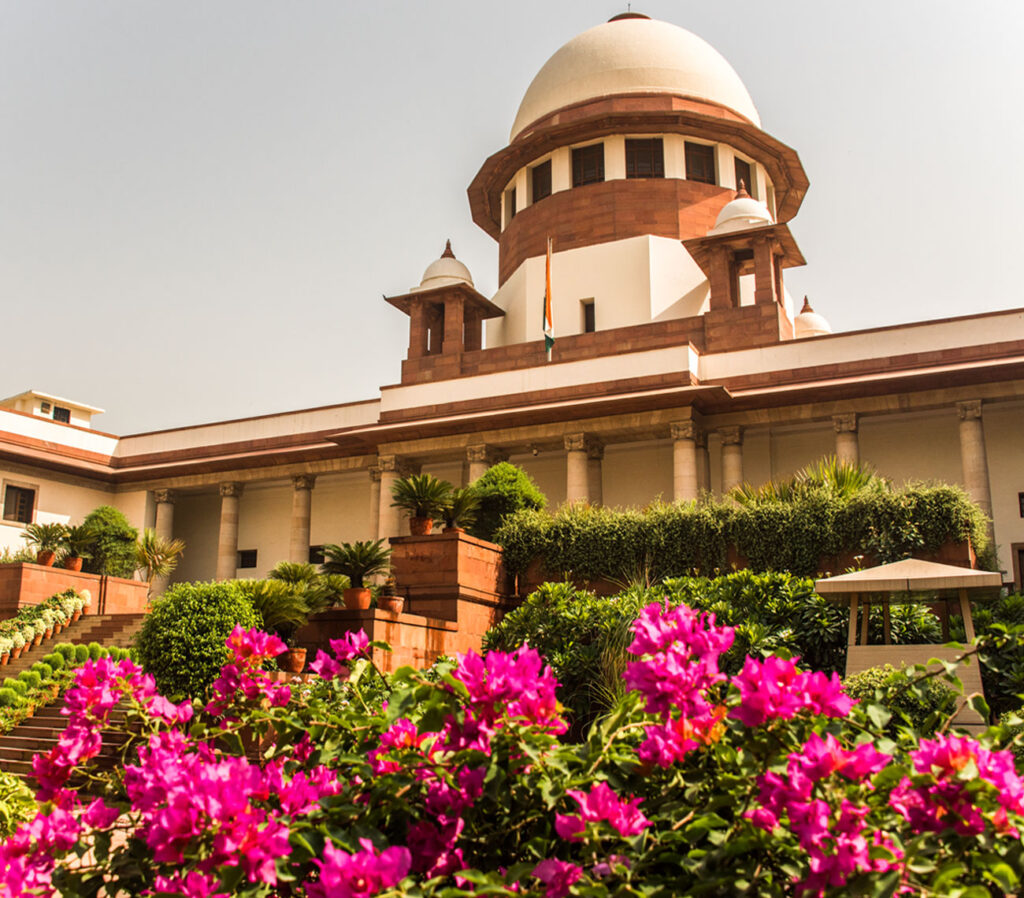Nitiriti Bureau
New Delhi, Nov 7.
The Supreme Court has held that High Courts have no power to direct any bank or a financial institution to grant any one-time settlement (OTS) benefits or extend the time granted to pay up dues under any such scheme.
The borrower and the creditor bank can mutually agree to extend the time permissible under Section 62 of the Indian Contract Act, the court said. A court order to the bank to reschedule the payment under OTS would tantamount to modification of the contract in violation of the Act.
Rescheduling payment under an OTS scheme and granting extension of time would tantamount to rewriting the contract which is not permissible under Article 226 of the Constitution of India, the court said. Borrowers are bound to make payments as per the sanctioned OTS scheme.
A two-judge bench led by Justice M.R. Shah ruled on Friday that no borrower can as a matter of right pray for a grant for the benefit of one-time settlement scheme. The other judge on the bench was Justice Krishnan Murari.
No writ of mandamus can be issued by the High Court under Article 226 directing a financial institution/bank to positively grant a benefit of OTS to a borrower. The grant of benefit of any OTS scheme is subject to the eligibility criteria and the guidelines issued from time to time.
State Bank of India, through standing counsel Sanjay Kapur, had challenged a March 10, 2022, Punjab and Haryana High Court order, granting six weeks’ time to Arvindra Electronics Private Limited to pay up Rs 2.02 cr with interest as per a sanctioned OTS letter dated September 21, 2017.
In this case SBI had sanctioned a cash credit to the company. The borrower’s account was subsequently declared as a non-performing asset. The bank came out with a one-time settlement making way for payments as settled under the scheme within six months from the date of sanction.
Under this the borrower was required to deposit 25 per cent of the amount by Dec 21, 2017, and the balance to be deposited within six months from the date of the letter with interest. The borrower paid some amounts but sought an extension of 8 to 9 months for repayment of the balance amount of Rs 2.50 crores.
The bank declined the plea for extension and directed the borrower to pay the balance 2.52 crores by May 21, 2018. Feeling aggrieved the borrower went to the High Court. The bank later offered three more OTS schemes but the company did not avail of any.
Eventually the bank refused to accept a one-time settlement offer by the borrower to pay Rs Rs 2.05 crores on the ground that the amount now due to it was around Rs 23.54 crores.
The High Court set aside the bank communication of Feb 24, 2021, rejecting the OTS offer of Rs 2.05 crores made by the borrower and granted six weeks’ time to make the payment with interest as per the OTS sanctioned letter dated 21.09.2017.
Kapur arguing for SBI said that the High Court could not have directed the rescheduling of the payment under the OTS as it amounts to modification of the contract which can only be done by mutual consent under Section 62 of the Indian Contract Act.
The High Court ought to have appreciated that the OTS does not involve any public element and the OTS is non-discriminatory and nondiscretionary and applicable uniformly to all borrowers.
By the impugned judgment and order the High Court has rewritten the contract which is not permissible, Kapur argued.
The borrower argued that the appellant being a state is duty bound to act in a fair, transparent and non-discriminatory manner and any arbitrary action was amenable to the writ jurisdiction of the High Court.
The Bank arbitrarily and without just cause or explanation rejected his plea for extension while extending the benefit of extension to other borrowers.
Differential treatment of similarly-placed borrowers is nothing but arbitrary action and therefore, the High Court has rightly granted further six weeks’ time to the borrower to pay the balance amount under the OTS Scheme.
The bank action was also contrary to the spirit of the RBI guidelines, the borrower said. The bank has not set any eligibility criteria under any policy or under OTS scheme under which it can or cannot grant extension.
In absence of any criterion and an arbitrary rejection by the bank, the High Court has rightly allowed his prayer for more time to pay, he said. The High Court has power under Article 226 to extend the time period under the OTS, the company claimed.
High Courts can examine the justiciability of action taken by banks, he said. The borrower also claimed that it had paid off 80% of the OTS amount and only a small part remained.
The company was a small and medium enterprise and did not have the legal framework to retrieve its dues from defaulting parties. It was also willing to pay the entire dues with interest. The top court rejected all pleas of the borrower and ruled in favour of the banks.


